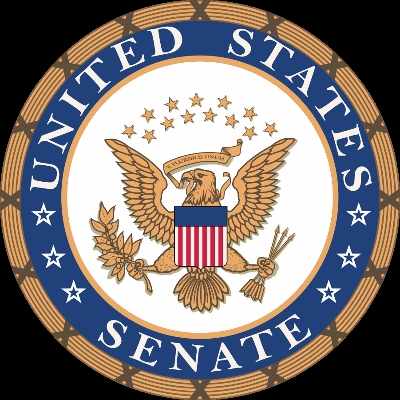 After a few days of heated back-and-forth between SiriusXM and the artist community, the Senate unanimously passed the Music Modernization Act today. The bill already passed in the House of Representatives in April.
After a few days of heated back-and-forth between SiriusXM and the artist community, the Senate unanimously passed the Music Modernization Act today. The bill already passed in the House of Representatives in April.
The bill includes three pieces of legislation: the Music Modernization Act of 2018, which updates licensing and royalties for streaming music; the CLASSICS Act, which ensures artists receive royalties for pre-1972 music; and the AMP Act, which affects royalties for producers and engineers. The bill was also officially renamed as the “Orrin G. Hatch Music Modernization Act.”
Mitch Glazier, President of the Recording Industry Association of America (RIAA) said in a statement, “As legendary band the Grateful Dead once said in an iconic pre-1972 song, ‘what a long strange trip it’s been.’ It’s been an epic odyssey, and we’re thrilled to almost be at our destination.
“For the modern U.S. Senate to unanimously pass a 185-page bill is a herculean feat, only achievable because of the grit, determination and mobilization of thousands of music creators across the nation. The result is a bill that moves us toward a modern music licensing landscape better founded on fair market rates and fair pay for all. At long last, a brighter tomorrow for both past and future generations of music creators is nearly upon us. We are indebted to the leadership of Senators Hatch, Grassley, Feinstein, Alexander, Coons, Kennedy and Whitehouse for helping get us there.”
“Today’s unanimous passage of the Music Modernization Act in the Senate represents a Herculean industry-wide effort to promote and celebrate songwriters and ensure their right to a sustainable livelihood. We applaud Senators Hatch, Alexander, Grassley, Feinstein, Whitehouse, Coons and the entire Senate for recognizing the value music has in both society and our hearts,” stated ASCAP CEO Elizabeth Matthews.
“American songwriters work tirelessly behind the scenes to create the music that fans all over the world enjoy. Today, we made history by joining together and working for Senate passage of the Music Modernization Act, bringing us one step closer to a music licensing framework that reflects how people listen to music today. We urge the House of Representatives to swiftly pass the Senate bill, so the President can sign it into law and music creators can begin to see the benefits of this critical reform,” added Paul Williams, songwriter and ASCAP Chairman of the Board/President.
NAB President/CEO Gordon Smith commented, “NAB applauds Senate passage of the Orrin G. Hatch Music Modernization Act. Naming this critical legislation after Senator Hatch is a fitting tribute to his tireless efforts to improve the lives of songwriters. NAB appreciates the hard work of Senators Hatch, Whitehouse, Alexander and Coons, Chairman Grassley and Ranking Member Feinstein in producing a compromise bill that will benefit songwriters, legacy recording artists, producers, digital streaming services, and music listeners.
“We are particularly supportive of a provision added to the Senate bill ensuring enhanced congressional review of any DOJ changes to ASCAP and BMI consent decrees. These decrees are essential to a functioning music marketplace, and any action to terminate them will now be preceded by appropriate Congressional oversight to protect the interests of songwriters, licensees, and consumers of music.”
“The passage of the Music Modernization Act by the Senate is a historic moment for the tens of thousands of music creators across the nation,” said Neil Portnow, President/CEO of the Recording Academy. “Since first proposing the music industry unite around a common bill in 2014, our members have lobbied in Washington and all 50 states to achieve this vision. When creators raise their voices for fairness, they make great progress.”
The Content Creators Coalition (c3) and MusicAnswers released a statement saying, “The Content Creators Coalition (c3) and MusicAnswers applaud the Senate passage and expected prompt House passage of the Music Modernization Act. The bill is a great step forward towards a fairer music ecosystem that works better for music creators, services, and fans.”


